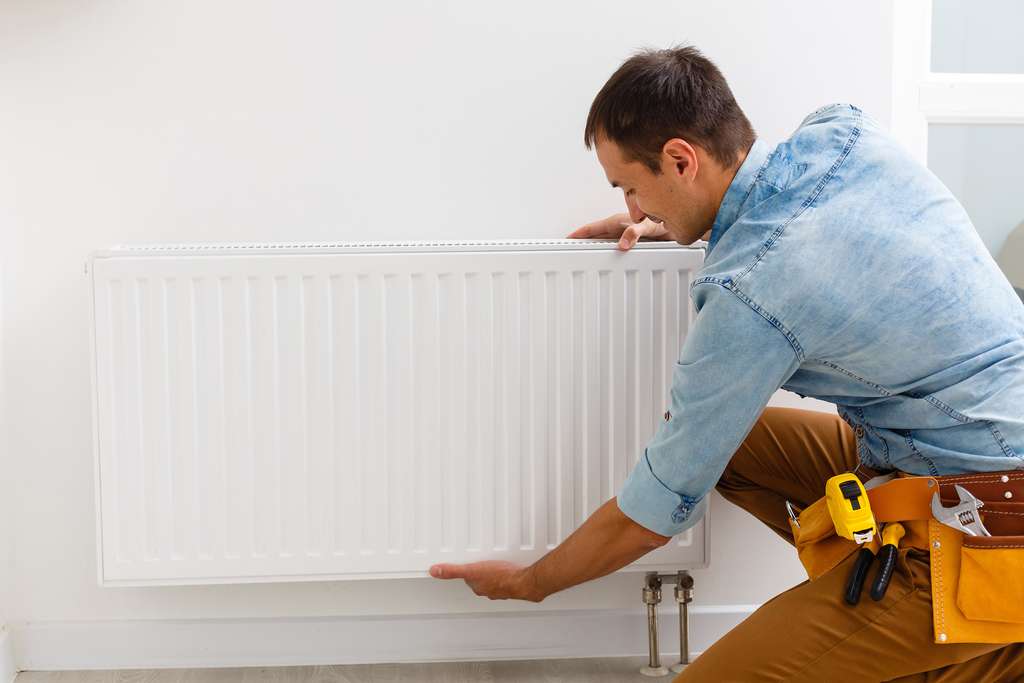The vast majority of modern homes across the UK are equipped with central heating, a system that provides on-demand heating throughout your home as and when you need it. Central heating has revolutionised the way we live, and keeping your central heating system maintained is essential to keeping your home warm all year round.
Let’s explore modern central heating systems and look at how they work, why they’re so efficient, and what you need to be aware of as a homeowner with a central heating system.
What is a central heating system?
A central heating system is a contemporary heating system that distributes heat throughout a property. They create heat in a single central location and use air, steam and water to spread this heat throughout the building. There are different types of central heating systems, although the majority of homes across the UK have a gas central heating system.
Some of the subtypes of central heating systems include:
Wet central heating: This is by far the most common type in the UK. Wet central heating systems use hot water that is pumped around the house to provide heat.
Warm air systems: These were popular in the 1960s and 70s. They heat homes by pumping hot air around a property using ducts and vents.
Storage heater systems: These systems work by storing heat overnight in firebricks and releasing this heat slowly throughout the day.
District heating system: A district heating system distributes heat to multiple properties or buildings from a single centralised source.
The majority of homes in the UK use a wet central heating system because this is one of the most efficient ways to heat a home. Today, homeowners considering upgrading their central heating system will usually opt for either a wet central heating system powered by a gas boiler or a renewable central heating system like a heat pump.
How does central heating work?
Gas central heating works by heating water in your central heating appliance or your gas boiler. This appliance is connected to the rest of your home via a network of pipes and radiators. The gas boiler heats the water before circulating it throughout your home via these pipes. The heat from the water in your pipes and in your radiators heats the air around your home and raises the temperature.
Most modern gas central heating systems use two pipes: one to pump hot water to each radiator and a second pipe to pump cool water back from the radiators and to the boiler. Central heating systems with only a single pipe are much less efficient because the hot water that travels through the house will lose temperature as it comes into contact with cooled water.
Inside the gas boiler, the boiler works by burning fuel (in this case, gas) to light a flame, which in turn heats a copper pipe filled with water. Some boilers use oil as the primary source to heat the water, but today 85% of UK homes use gas central heating. As the copper pipe gets hotter, it transfers heat to the water within the pipe and sends this water out into the central heating system.
What happens next depends on whether or not your boiler is a combi boiler. A combi boiler sends the heated water straight to a water tap or radiator in your home, while a non-combi boiler will send hot water to a hot water storage tank for pumping into your home when it’s needed.
What type of central heating system is most efficient?
A gas central heating system with a combi boiler is the most efficient type of gas central heating available because there is no need for a water storage tank with a combi boiler. The boiler heats water on demand and the hot water loses no heat in storage.
Installing a contemporary thermostat can also help you to keep your central heating system efficient. A thermostat monitors the temperature of your home and sends signals to your boiler to indicate when heating is needed and when it’s not. Using a thermostat prevents wasting energy heating your home when it isn’t needed and prevents the temperature in your home from dropping below comfortable levels.
Homeowners interested in upgrading to renewable sources of energy might consider heat pumps, electric boilers, and biomass boilers. Each of these appliances is capable of heating your home using renewable sources of energy like biomass fuel or electricity, which in turn reduces the carbon footprint of your home.
While these contemporary heating methods are more eco-friendly, they aren’t necessarily more efficient if your top priority is reducing your energy bills. Renewable appliances like air source heat pumps can cost significant amounts to run because they require a lot of electricity, which is more expensive than gas. It’s important to consider the running costs of any appliances before you install them in your home.
Do you need a new central heating system?
Understanding how central heating systems work can help you to assess whether your own central heating system is in need of an upgrade. If your central heating system is old, it’s probably not very efficient, and it may cost you more money in repairs in the long run. Upgrading an older boiler can help you to maximise the efficiency of your home’s heating system and reduce your bills.
Get in touch
At West London Gas, we provide gas, central heating and plumbing services to homes across West London including Acton, Ealing, Hammersmith and Notting Hill. If you’re looking for a professional and experienced plumber in West London, get in touch with us today.

